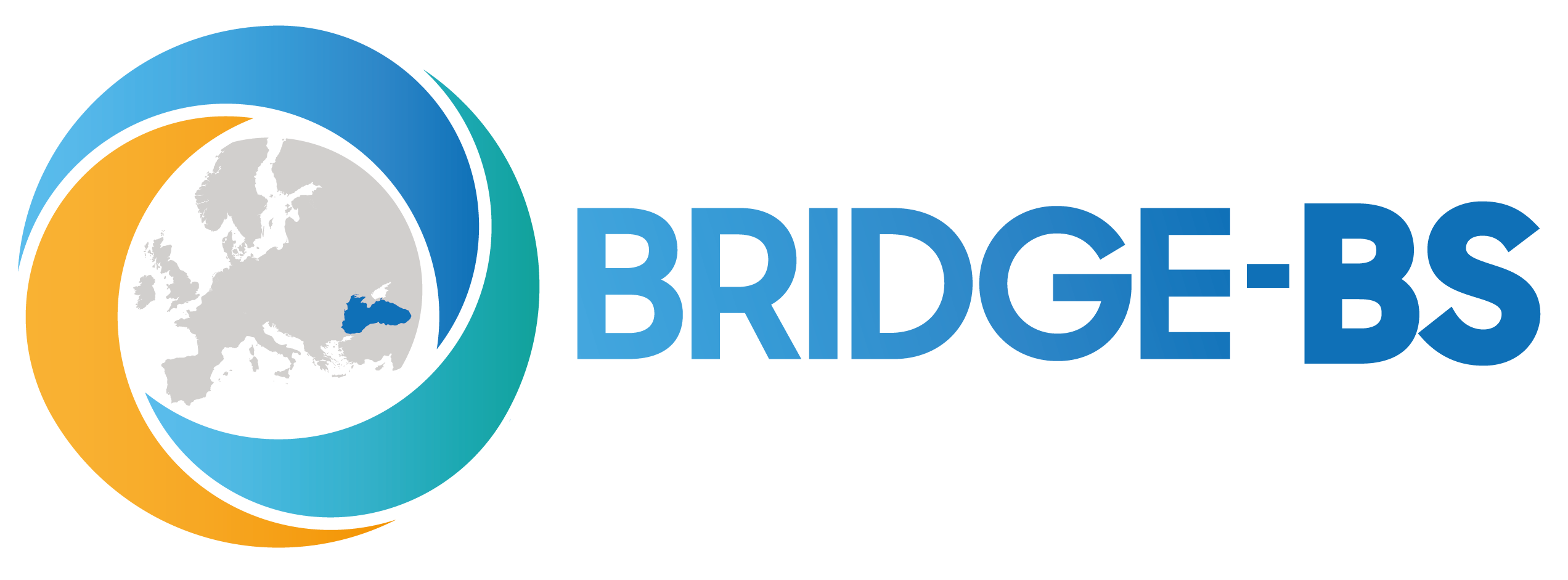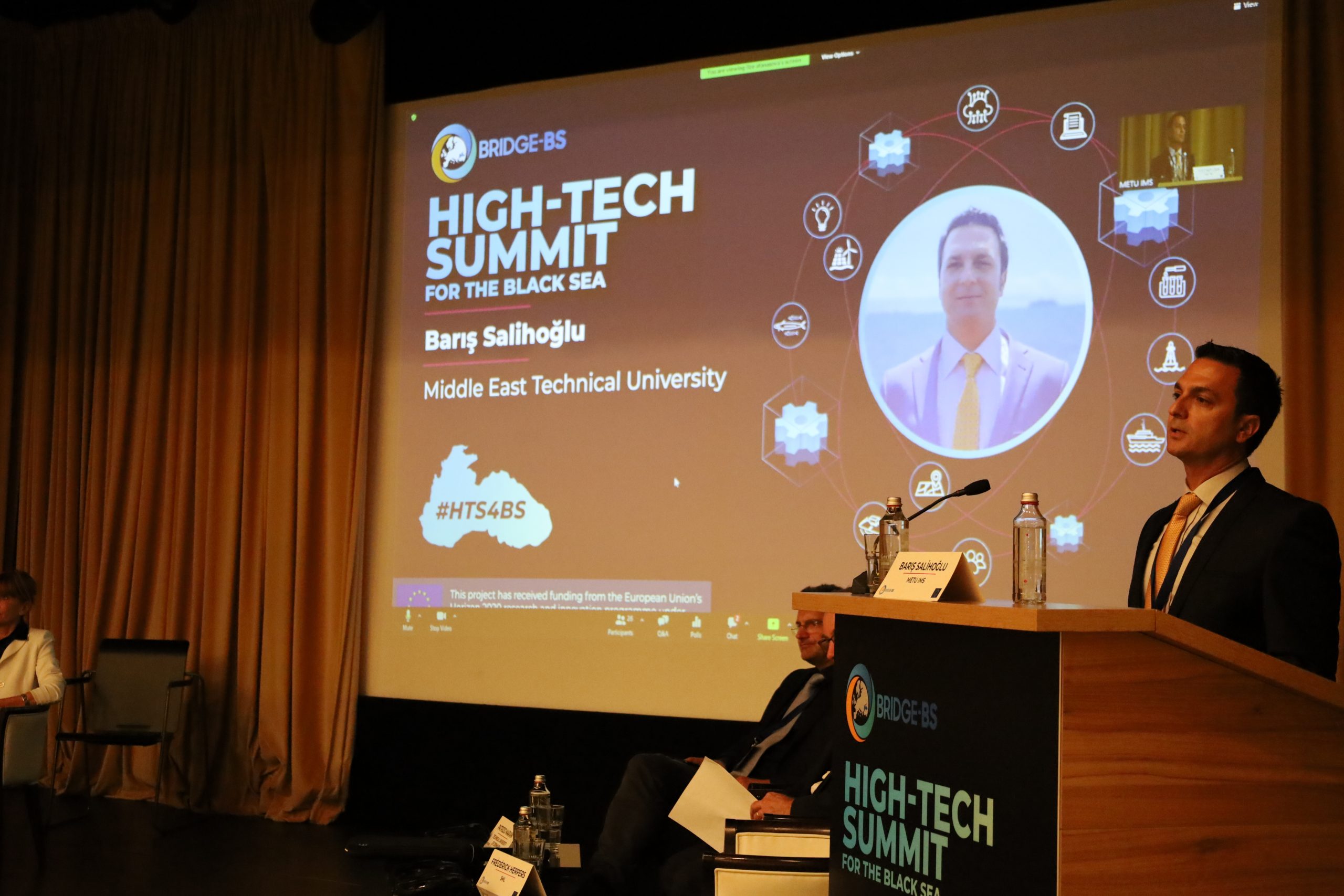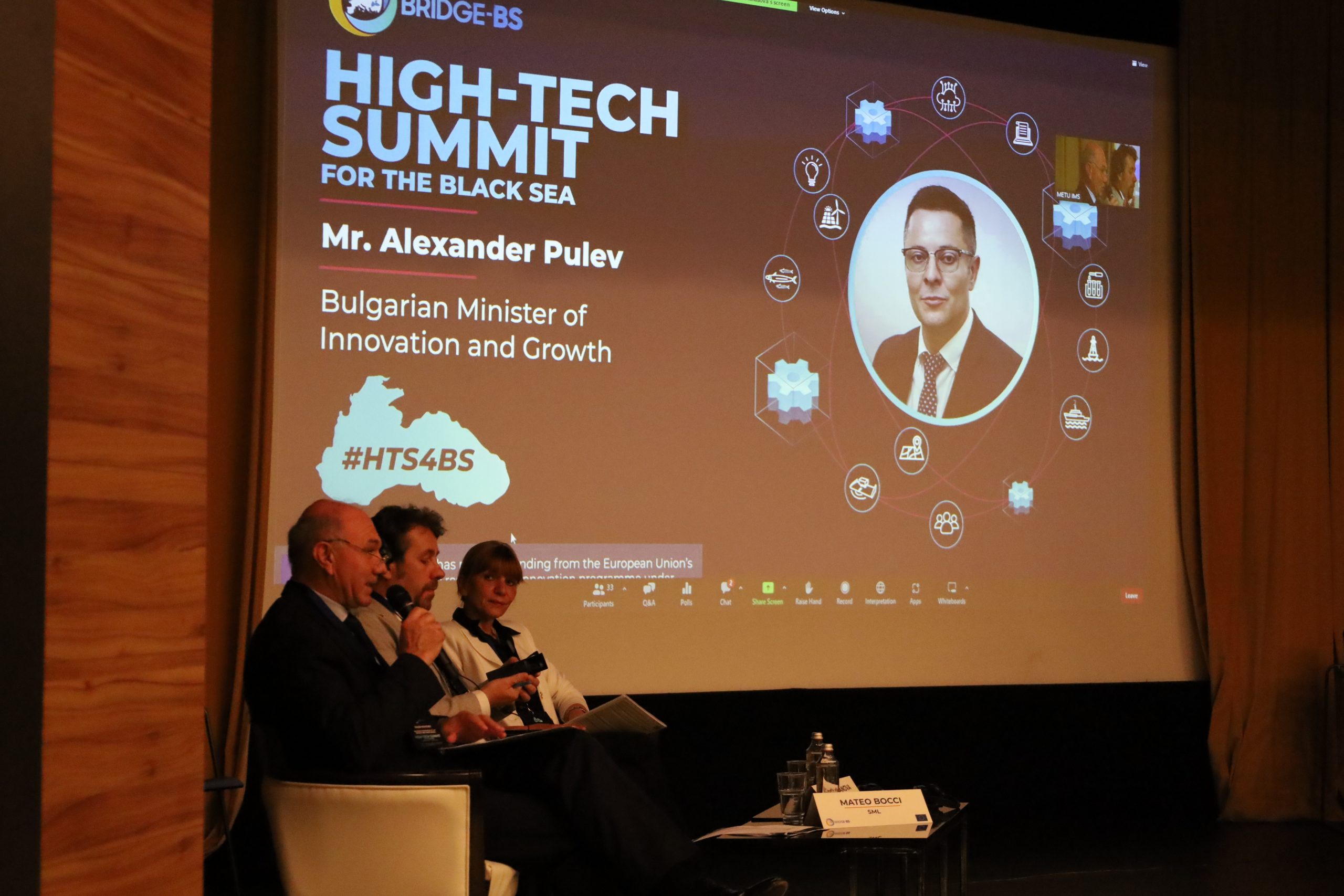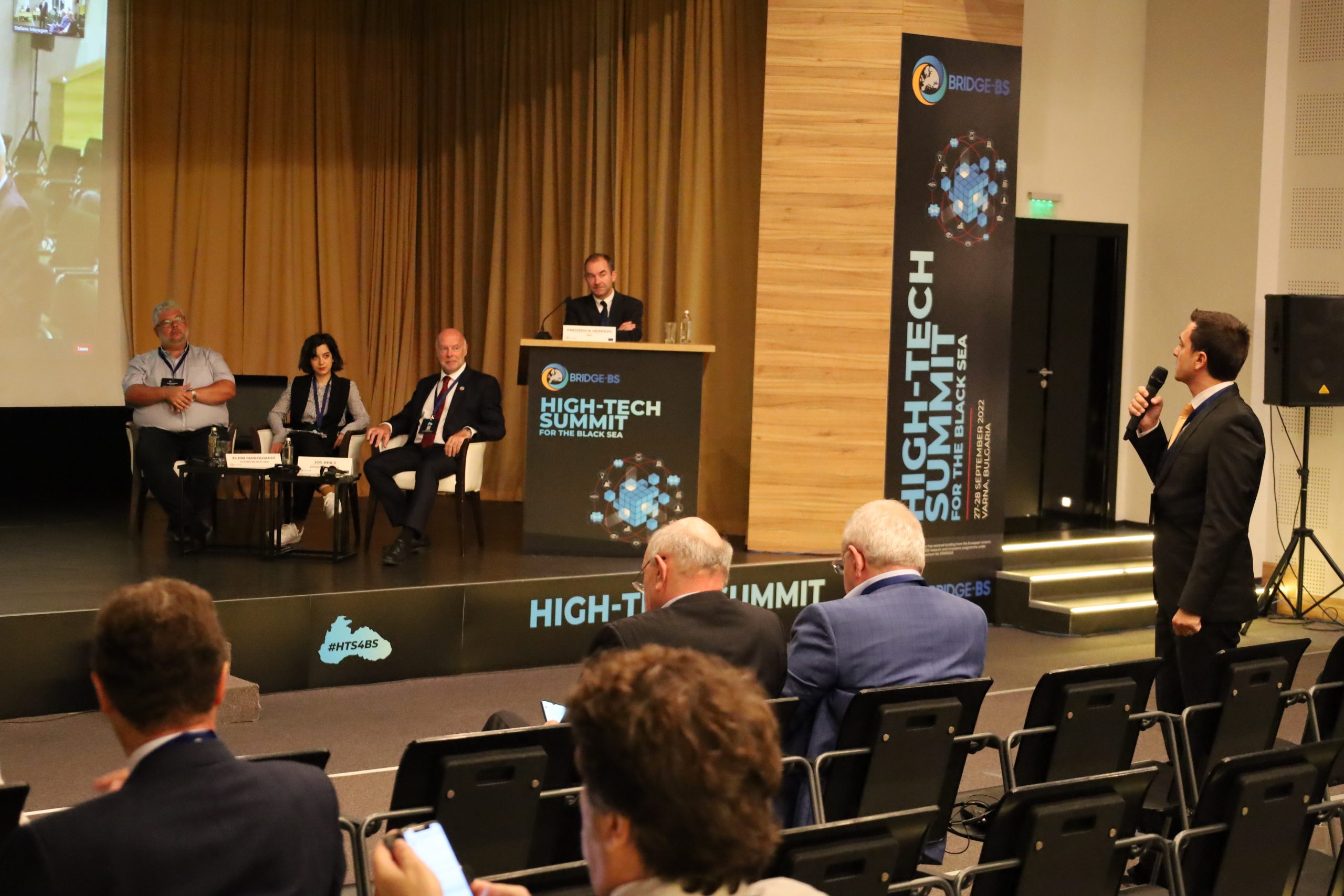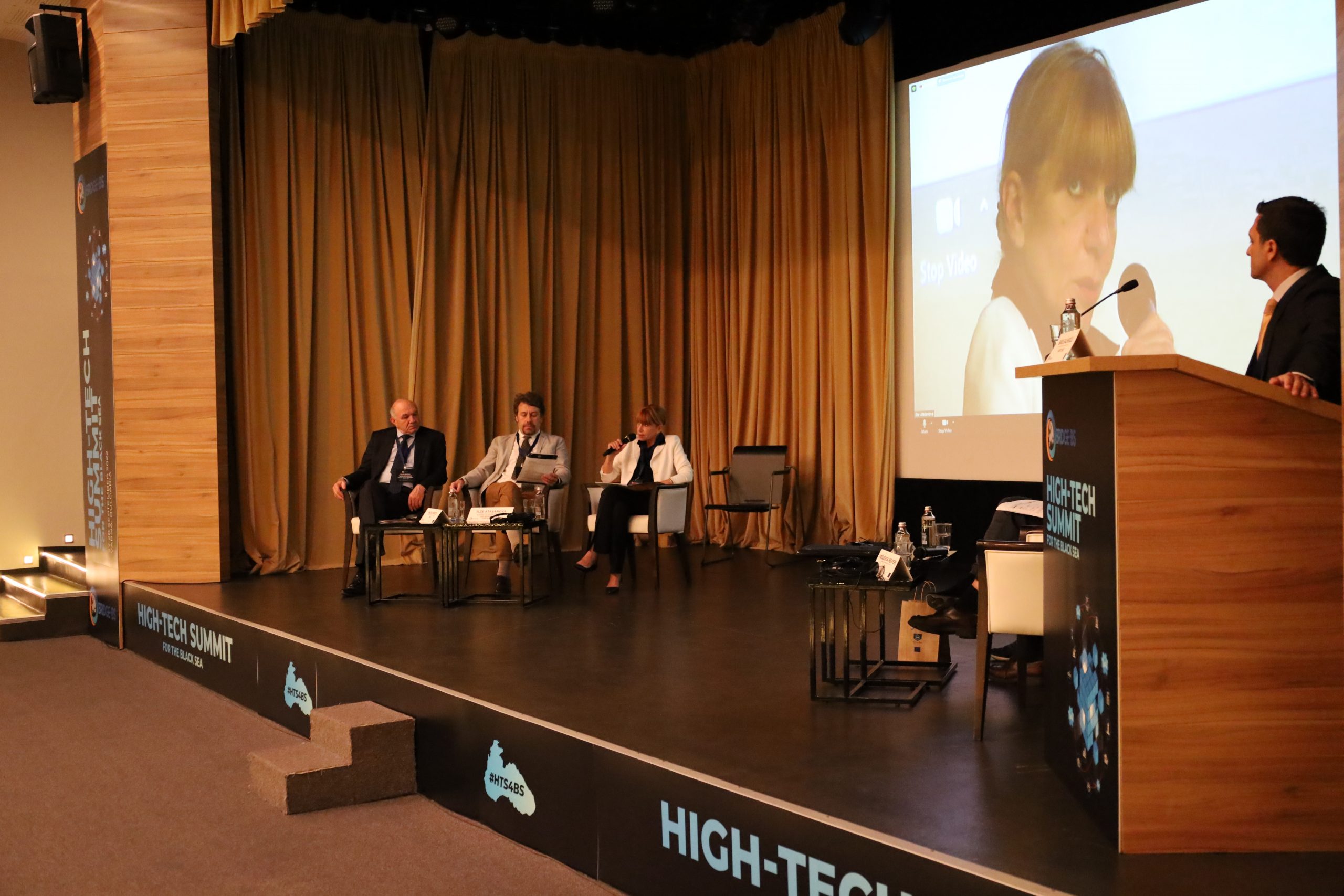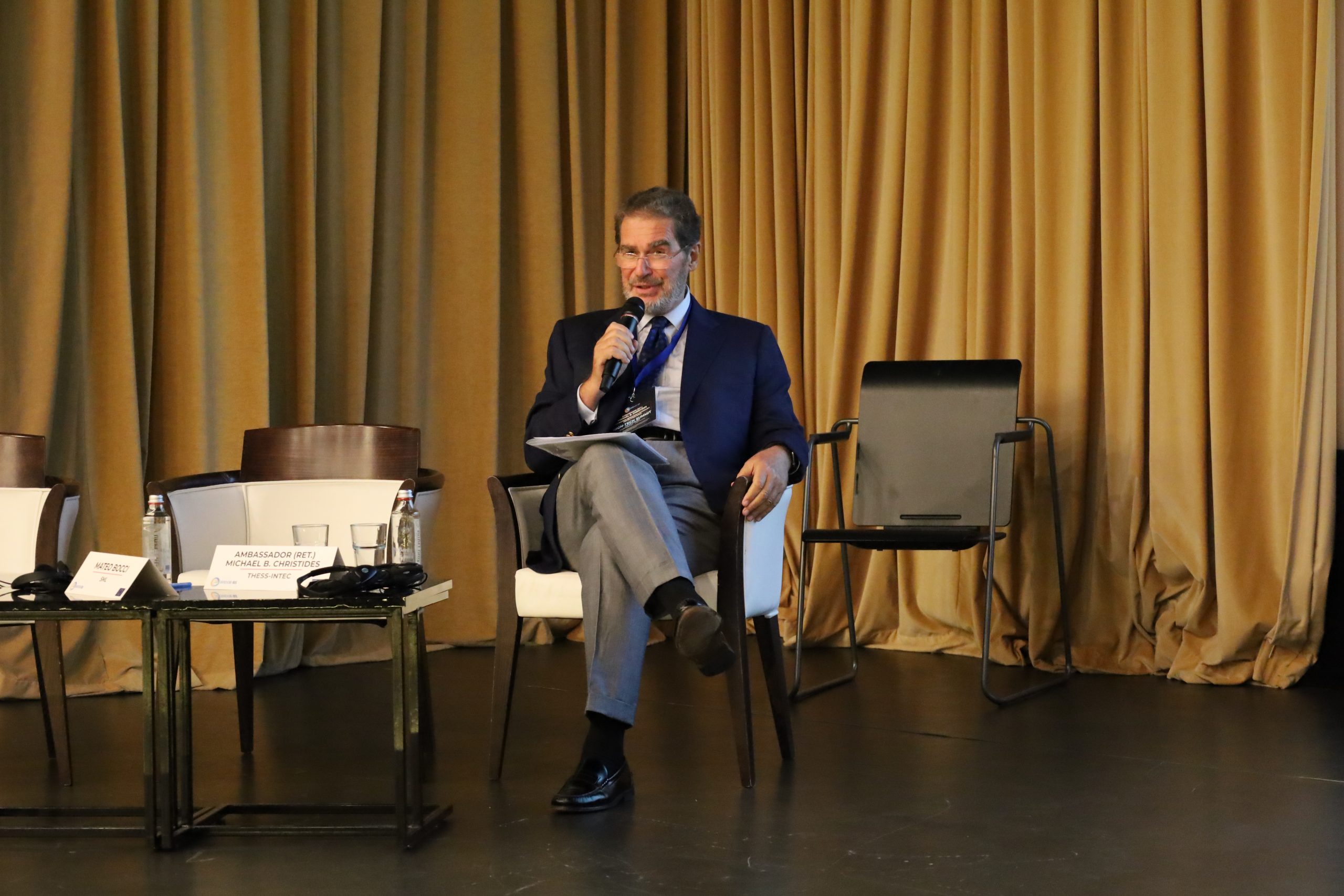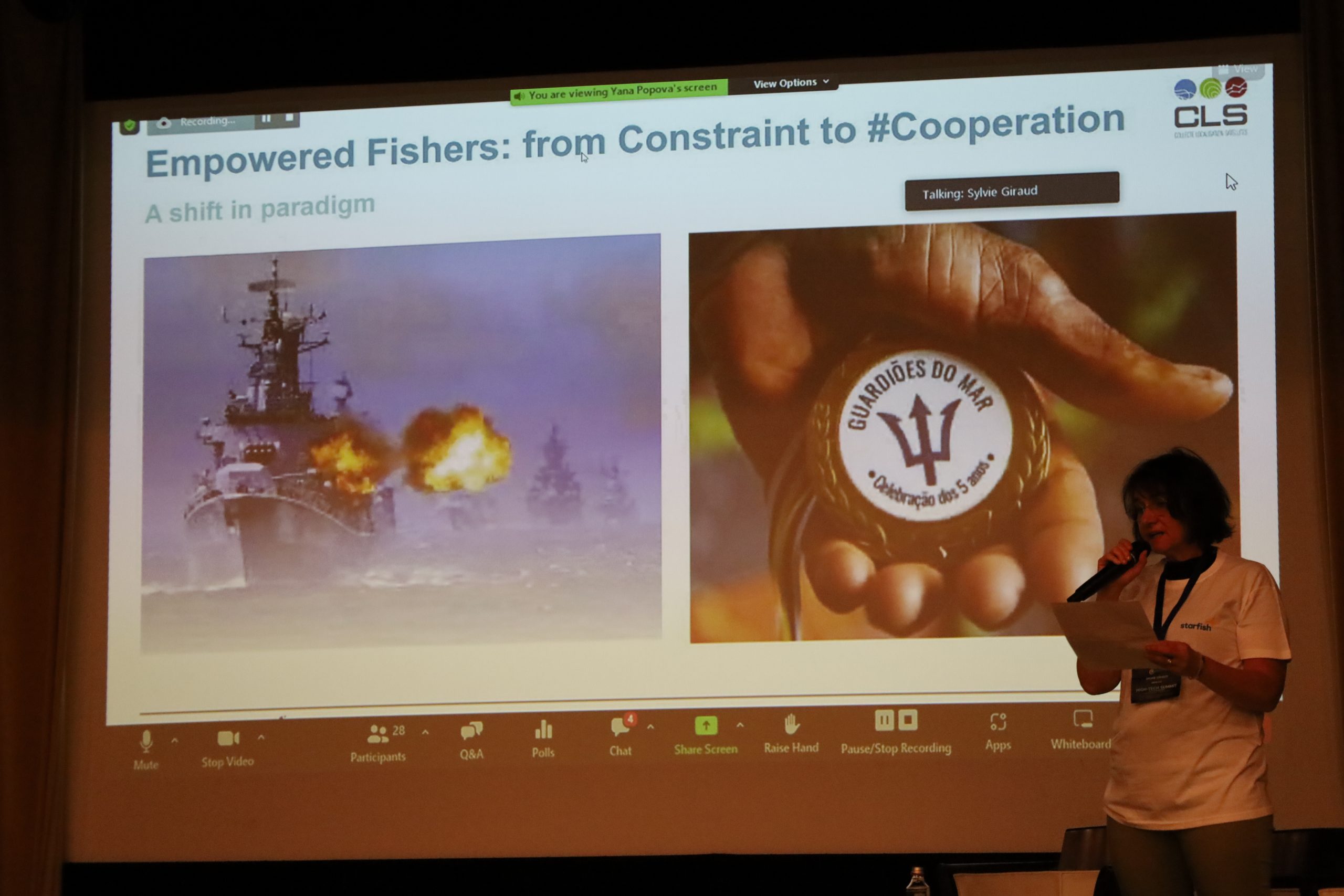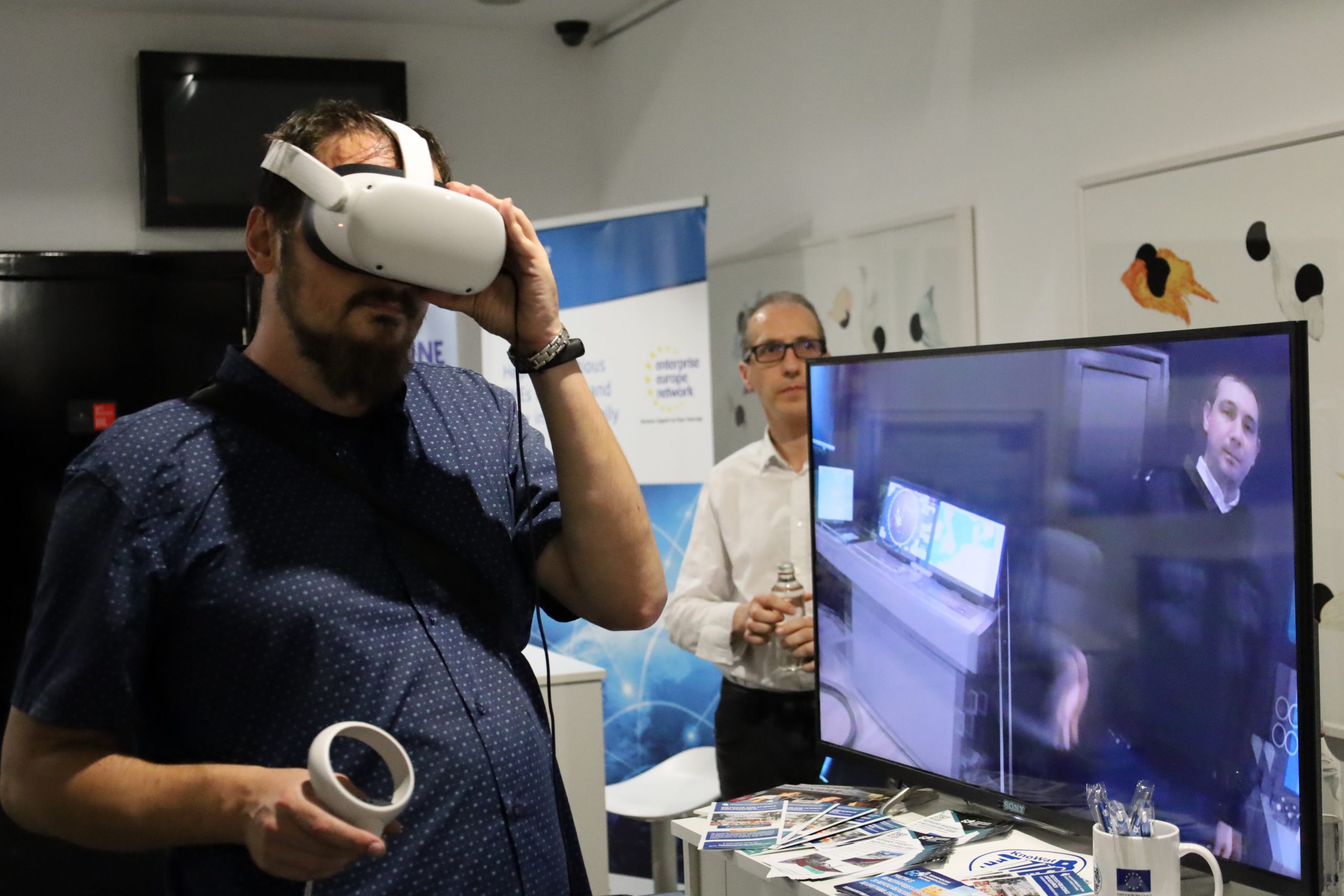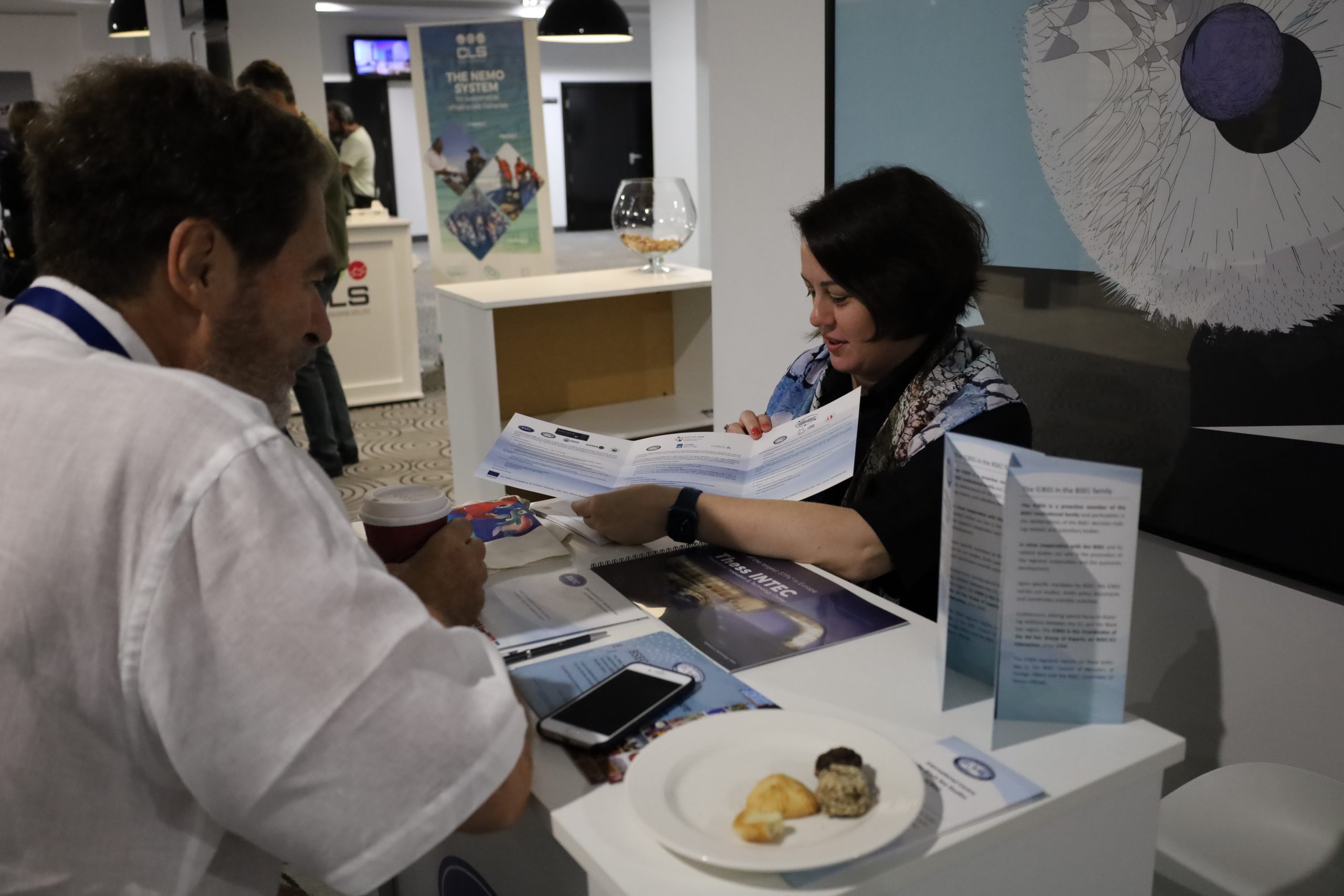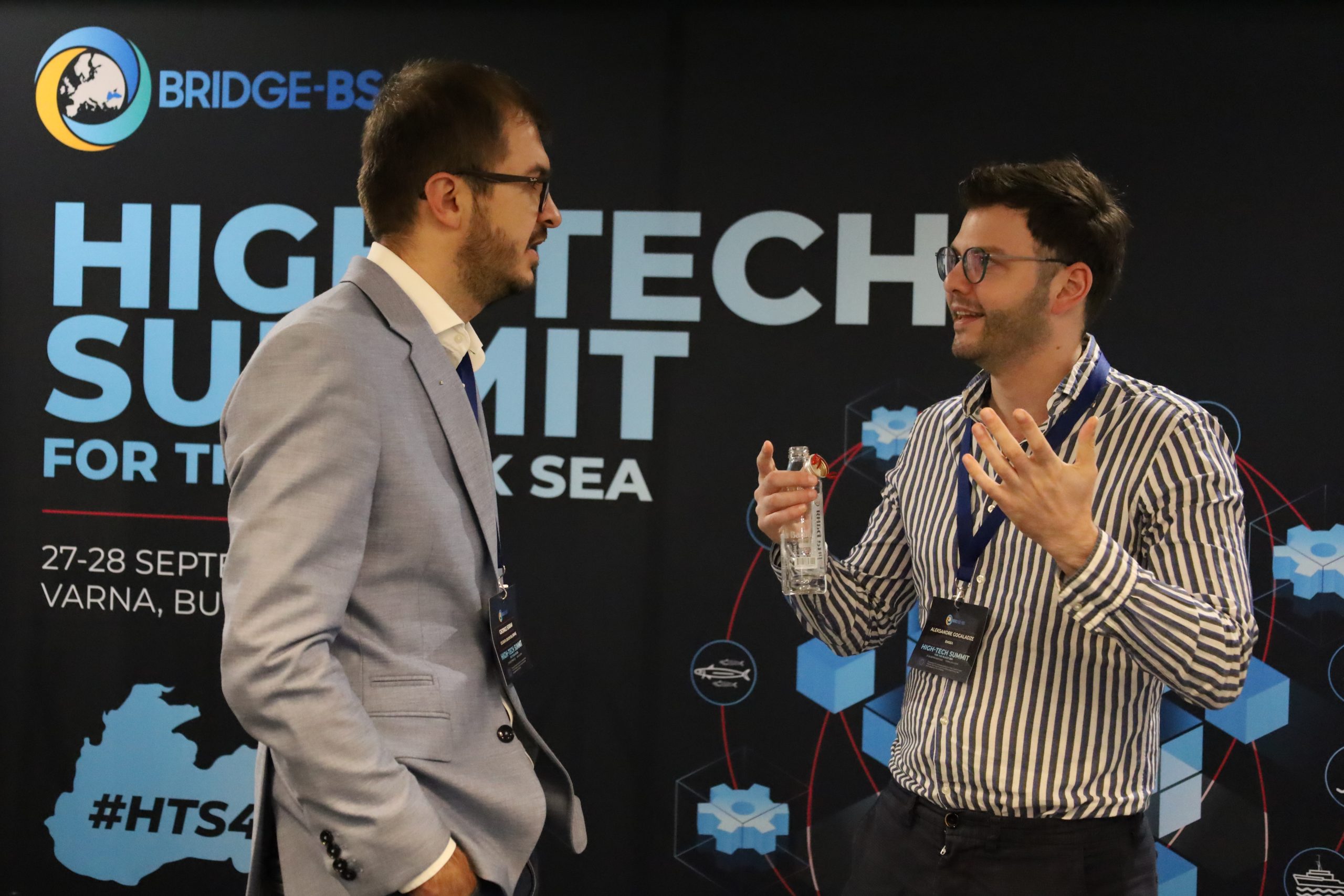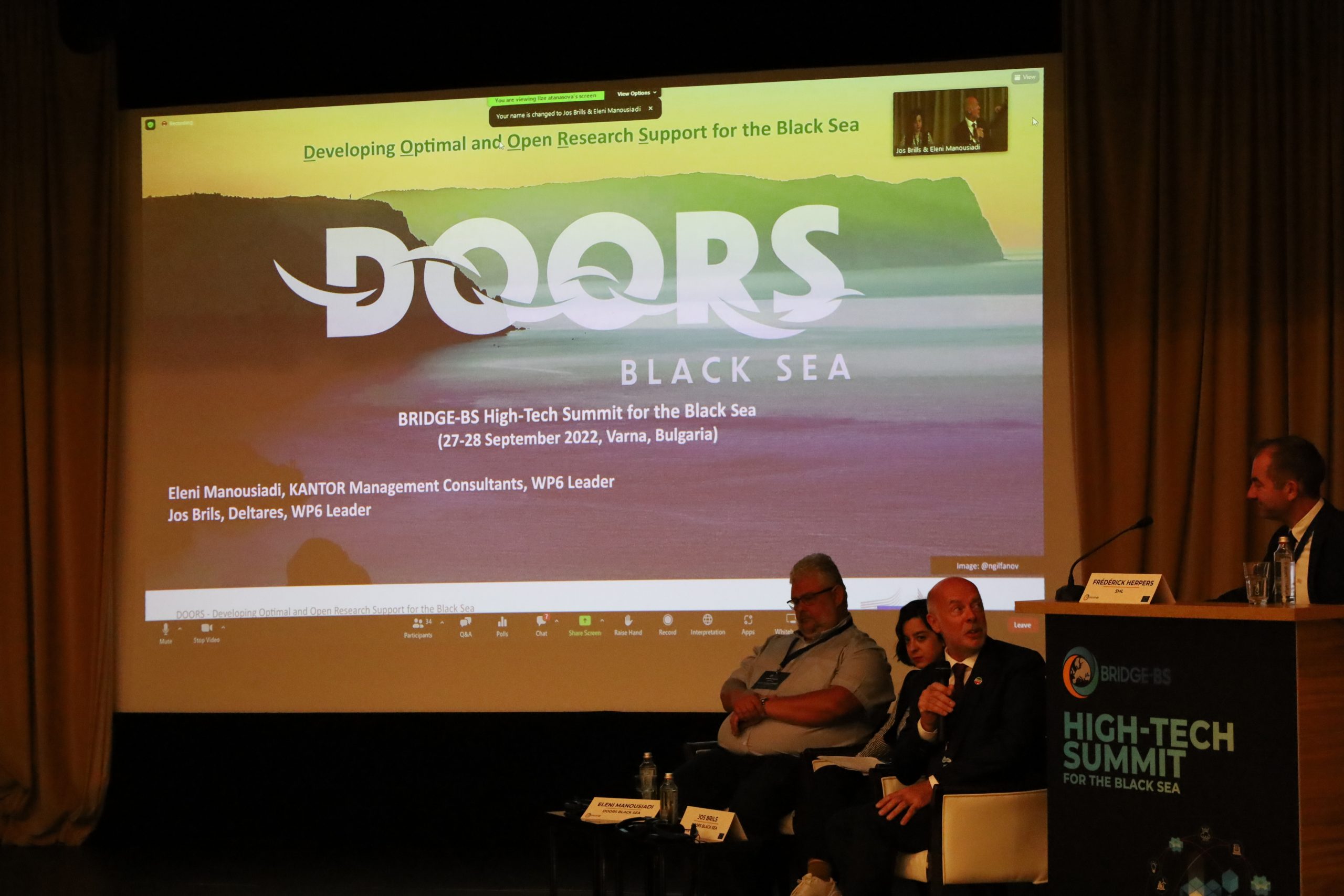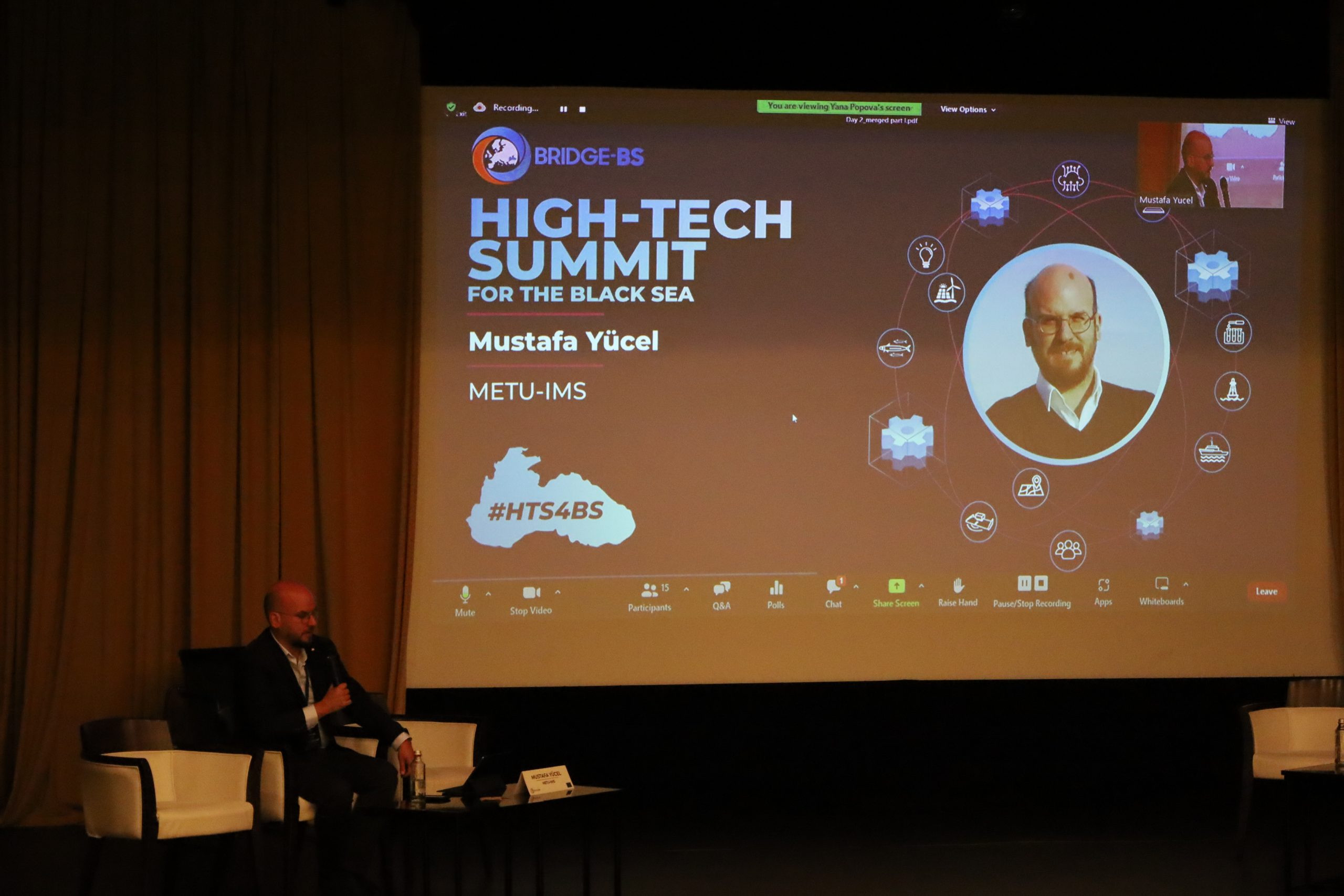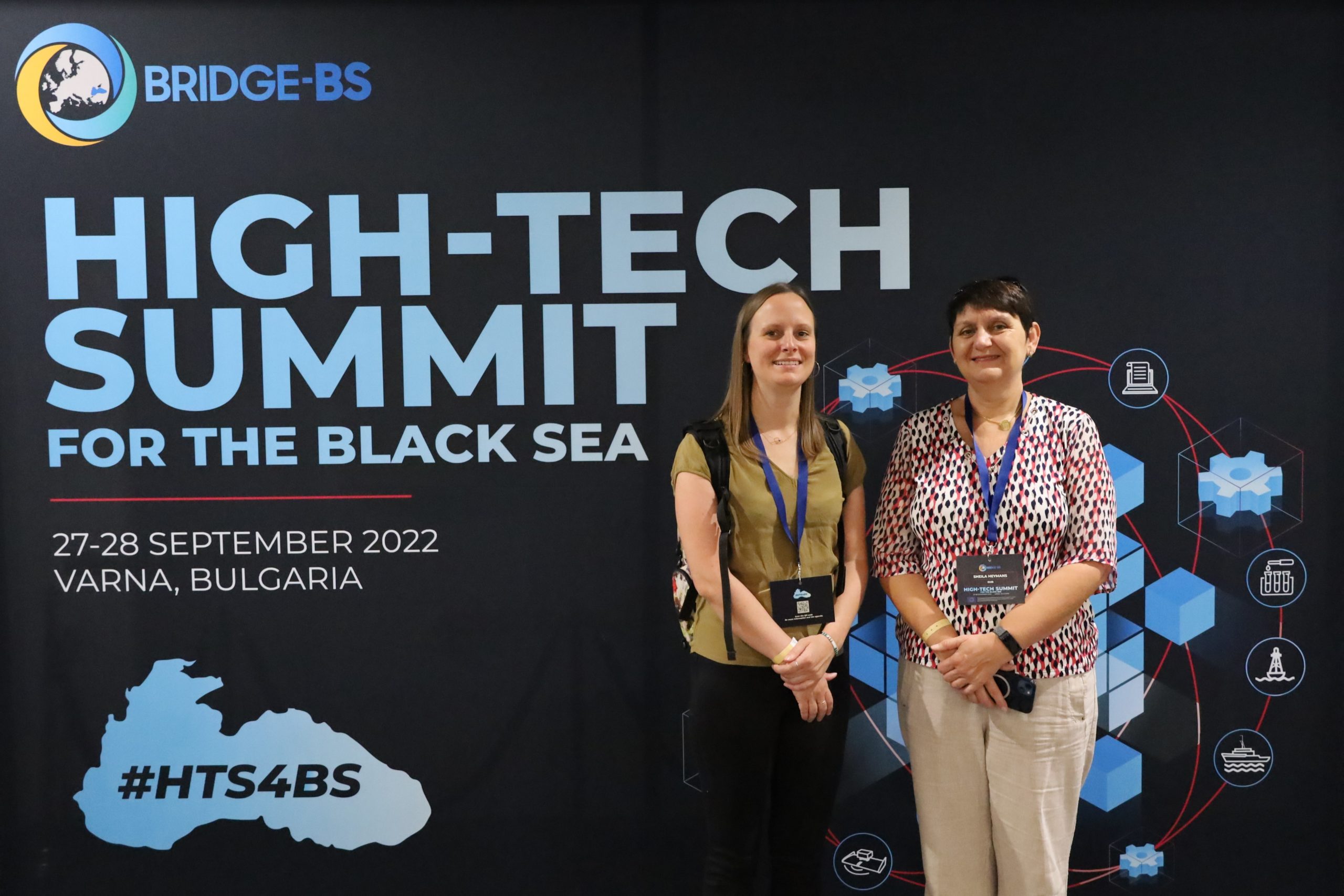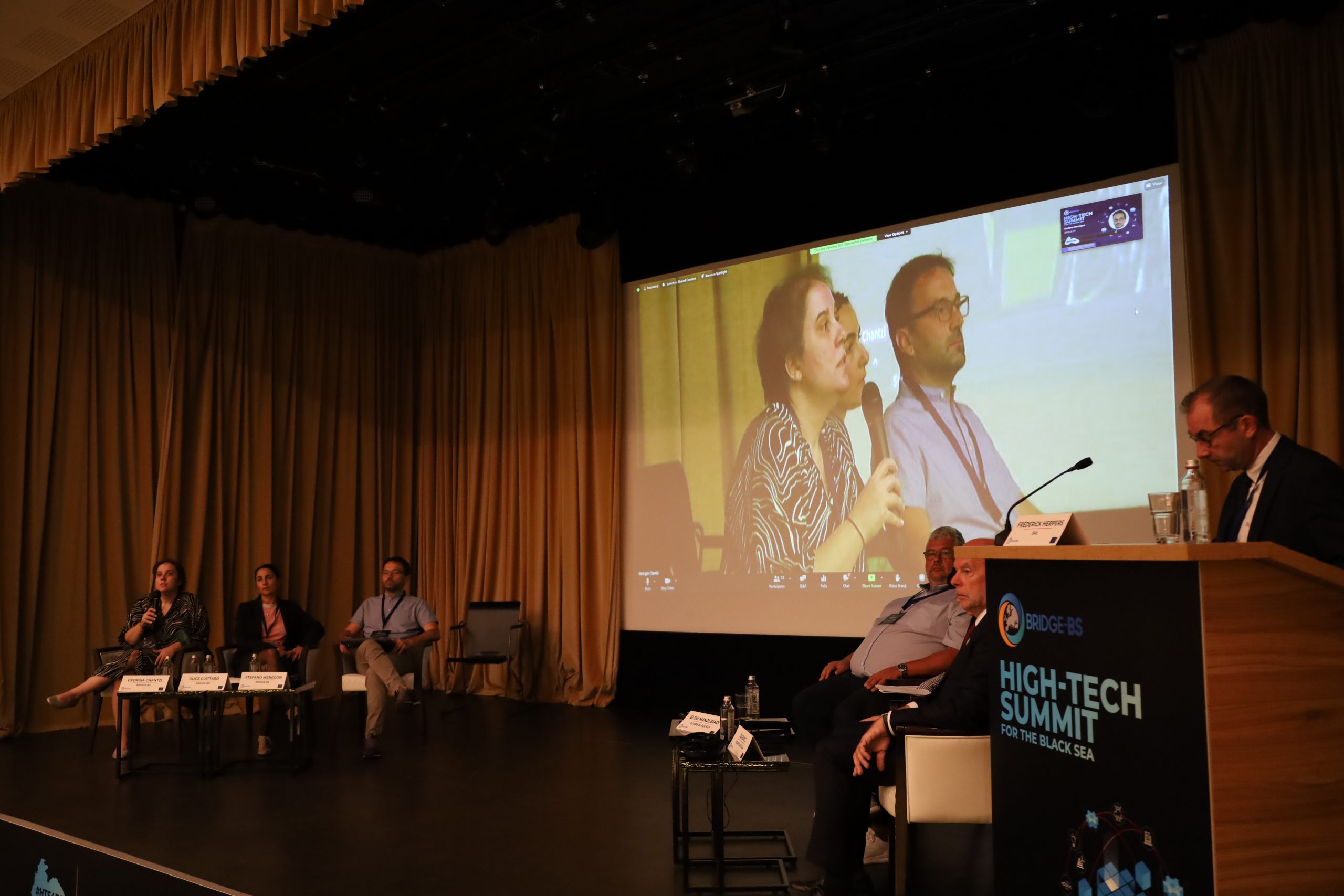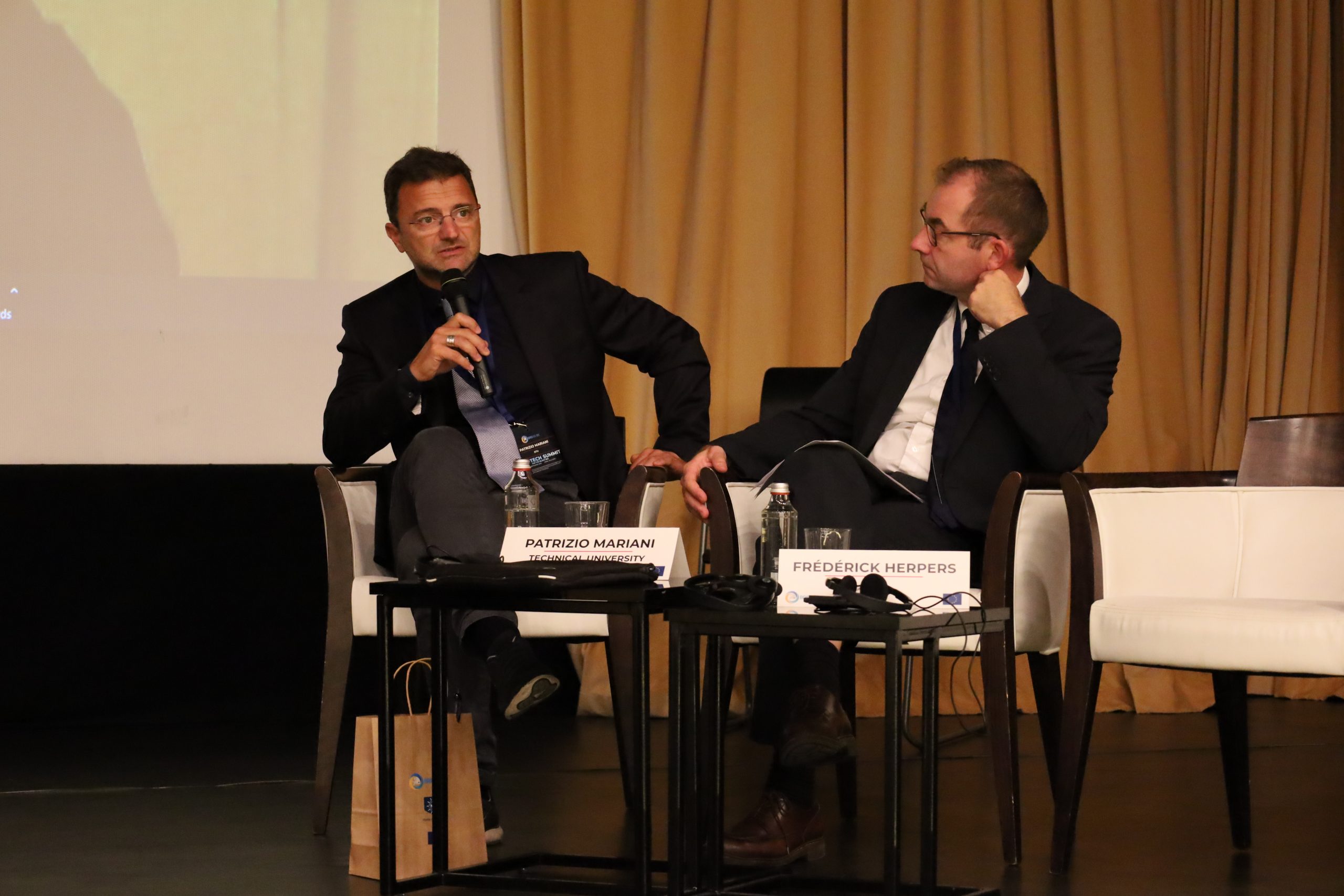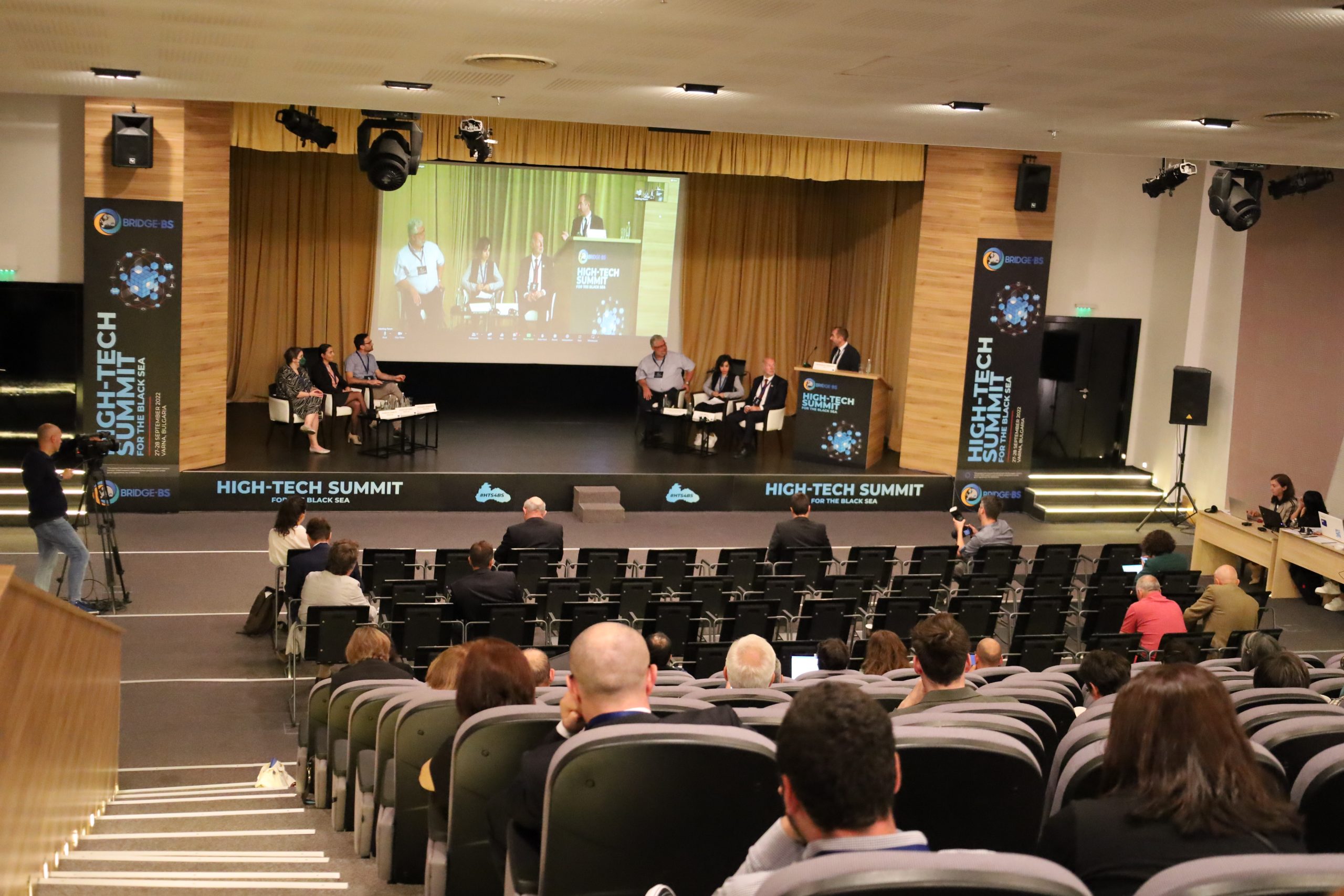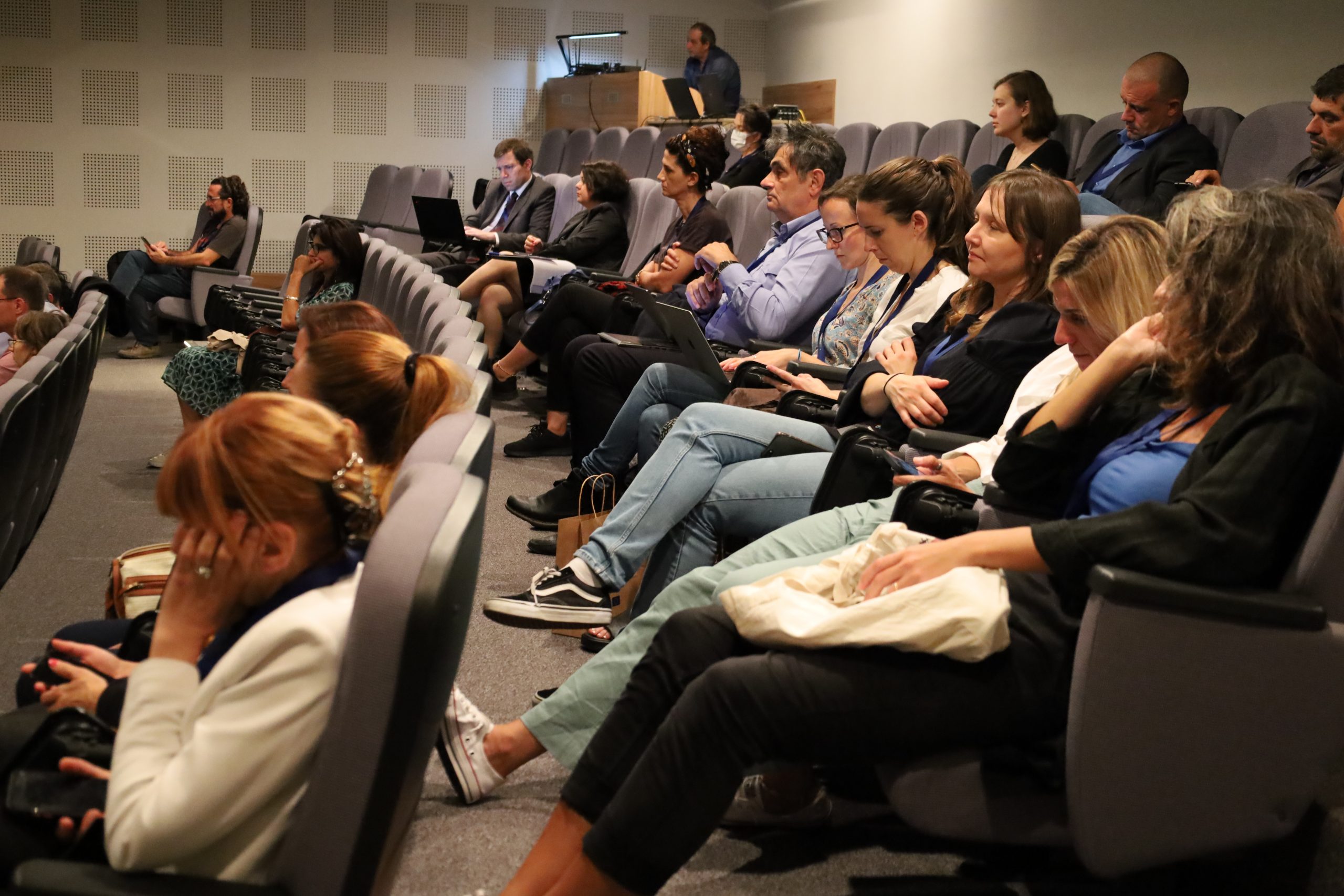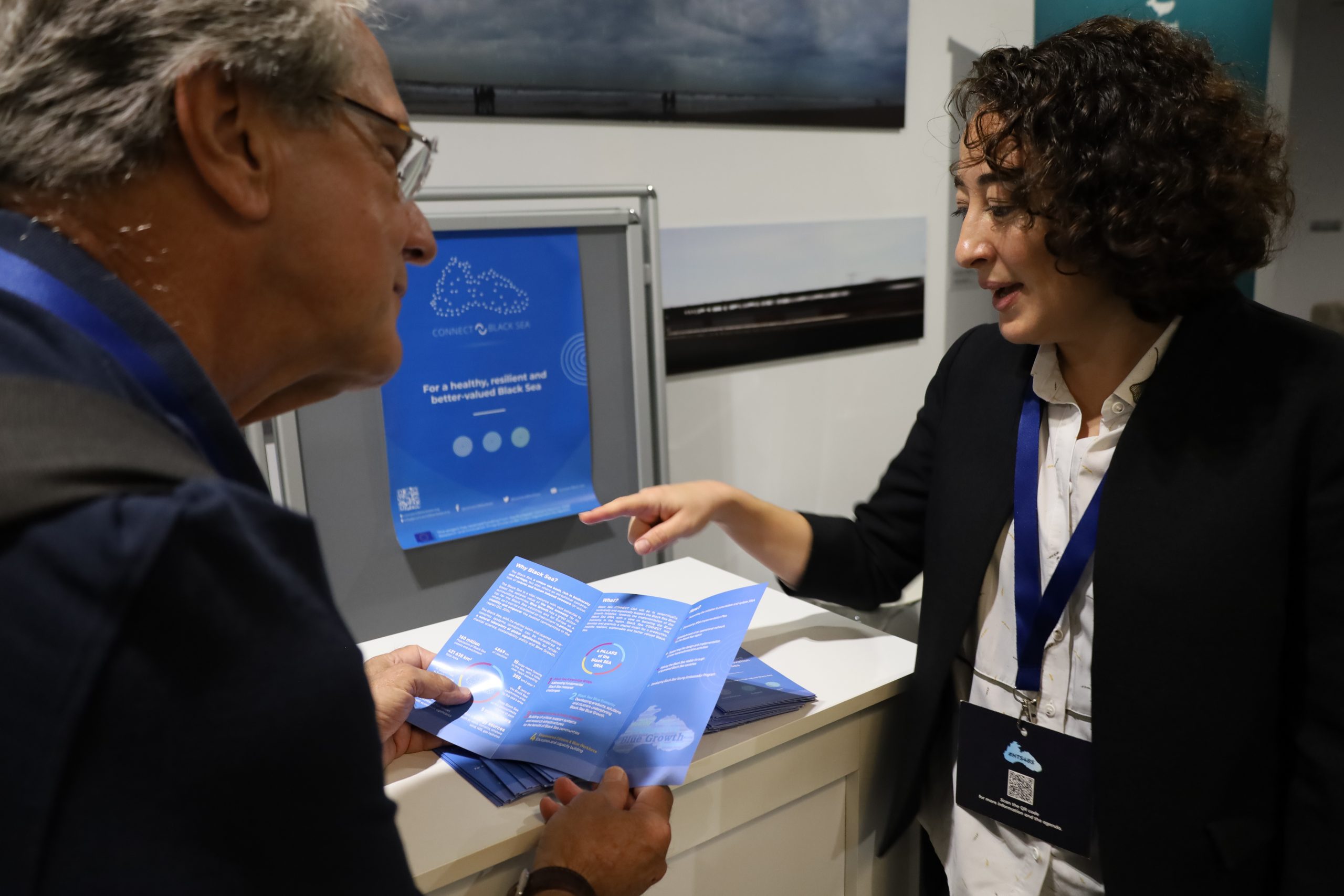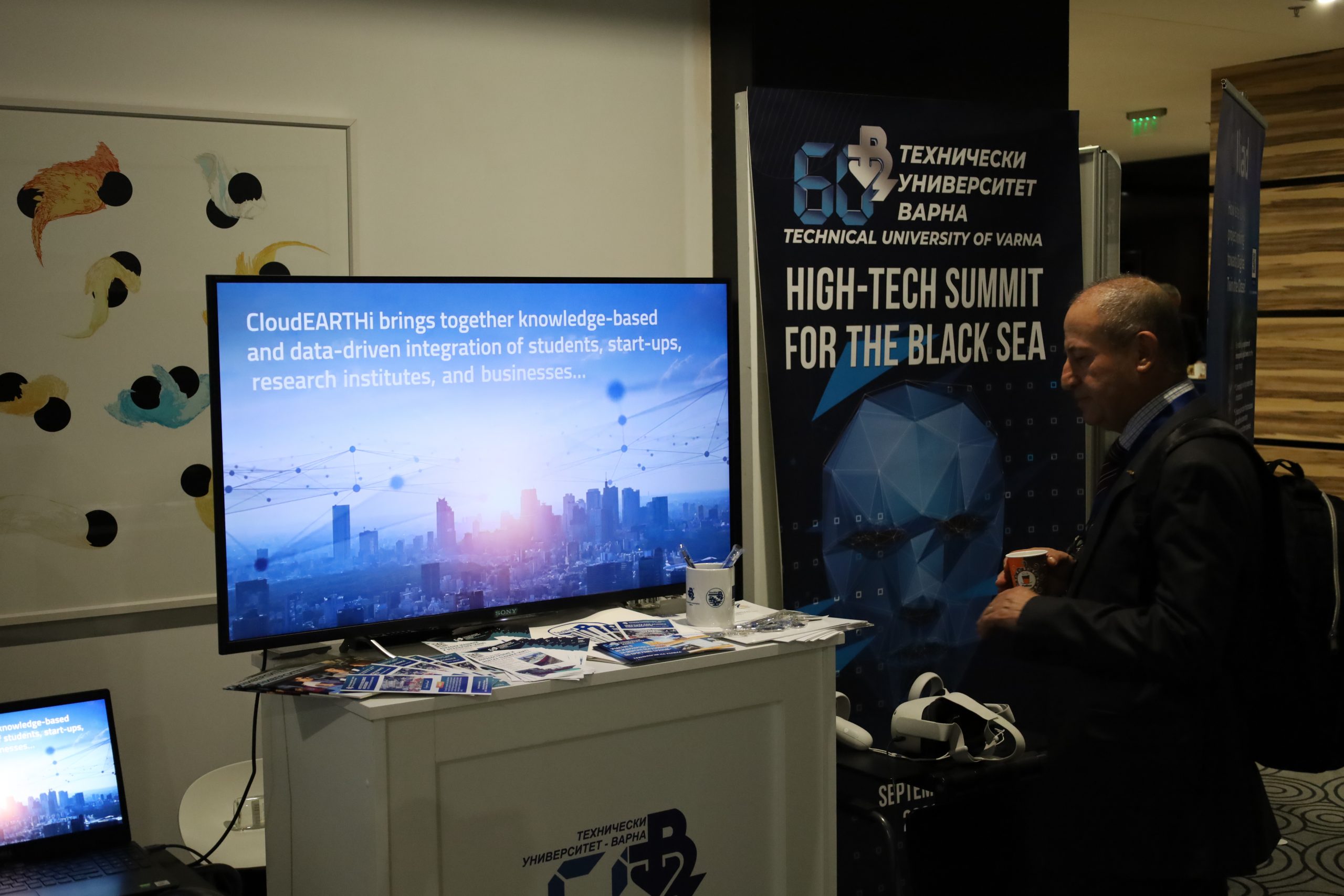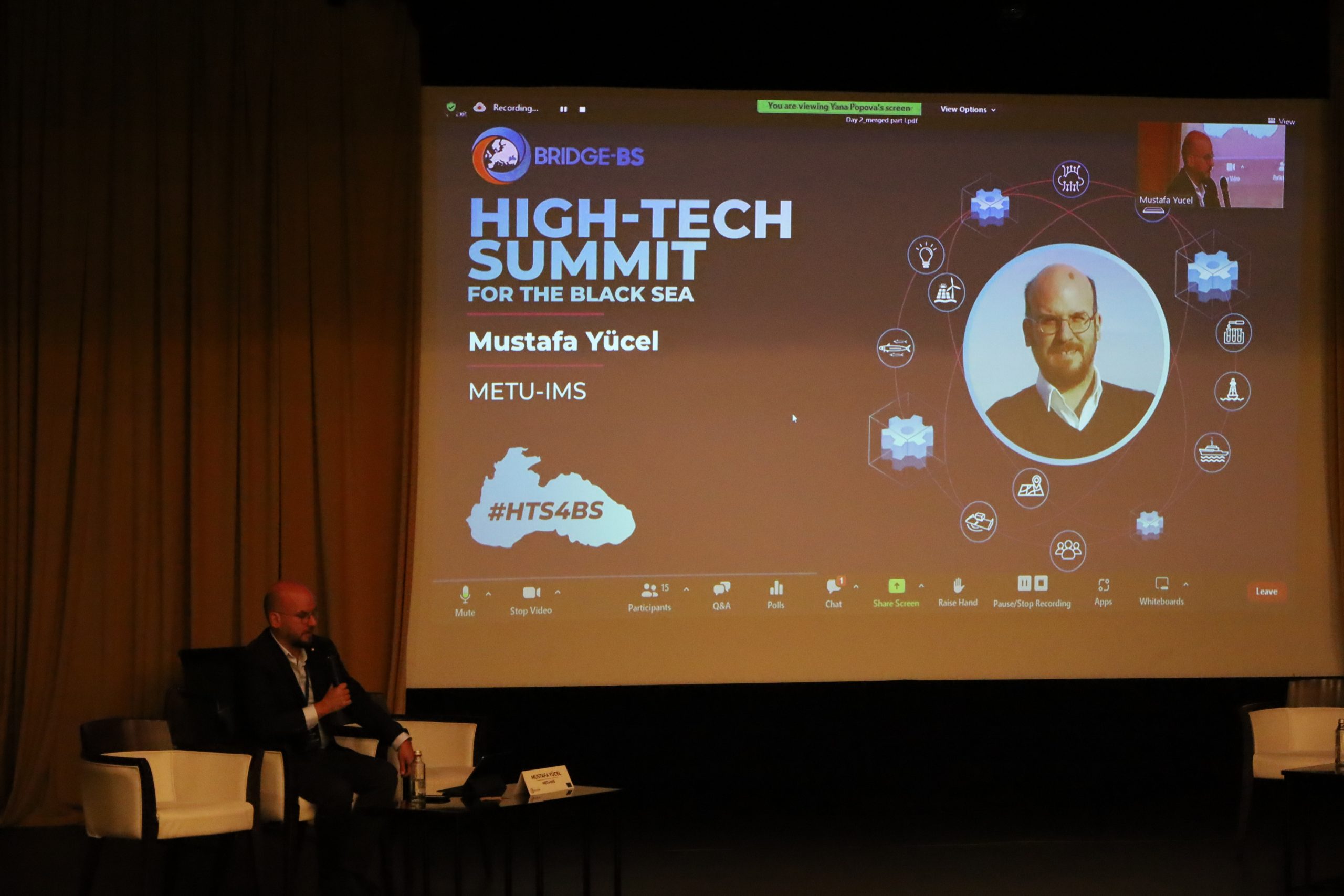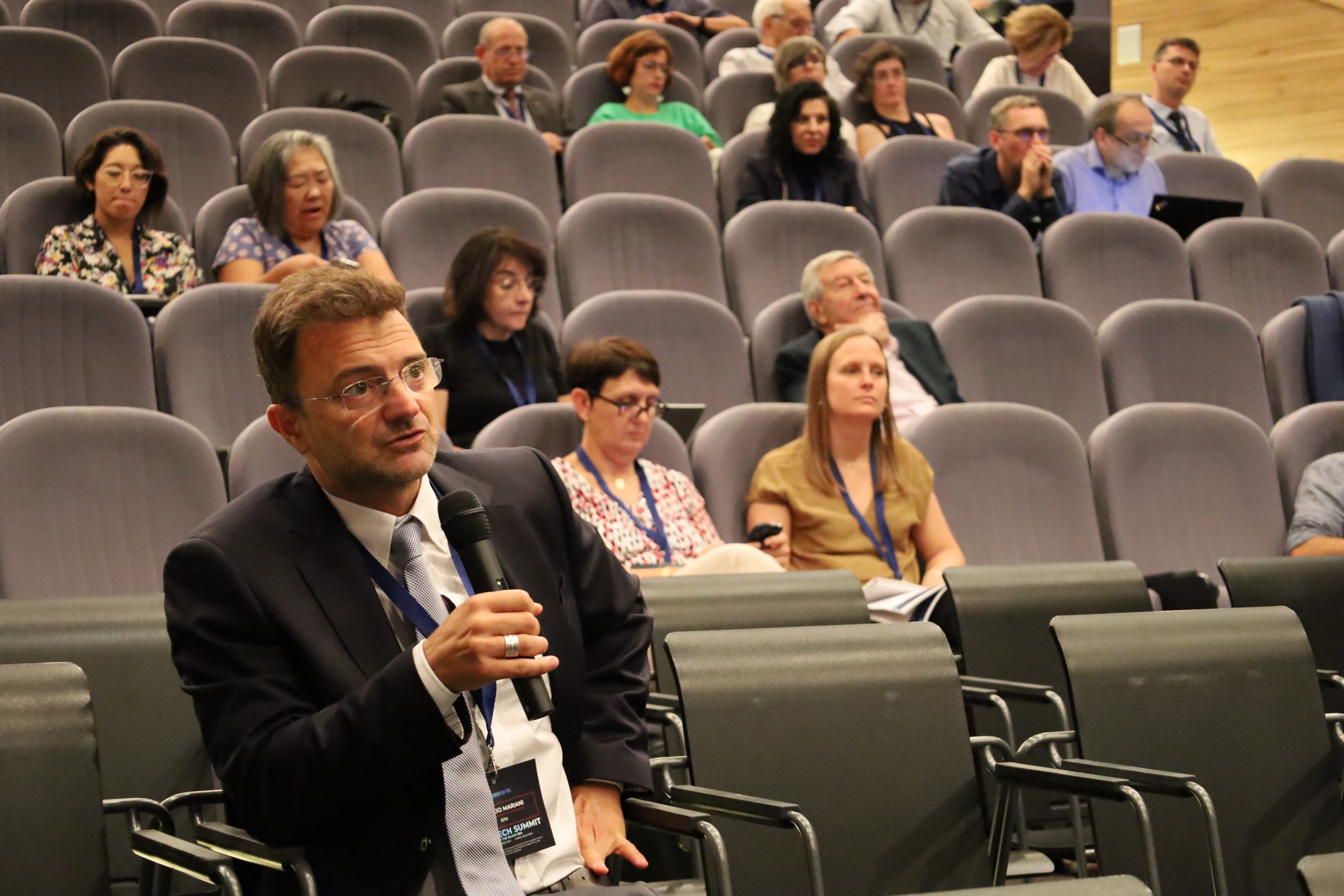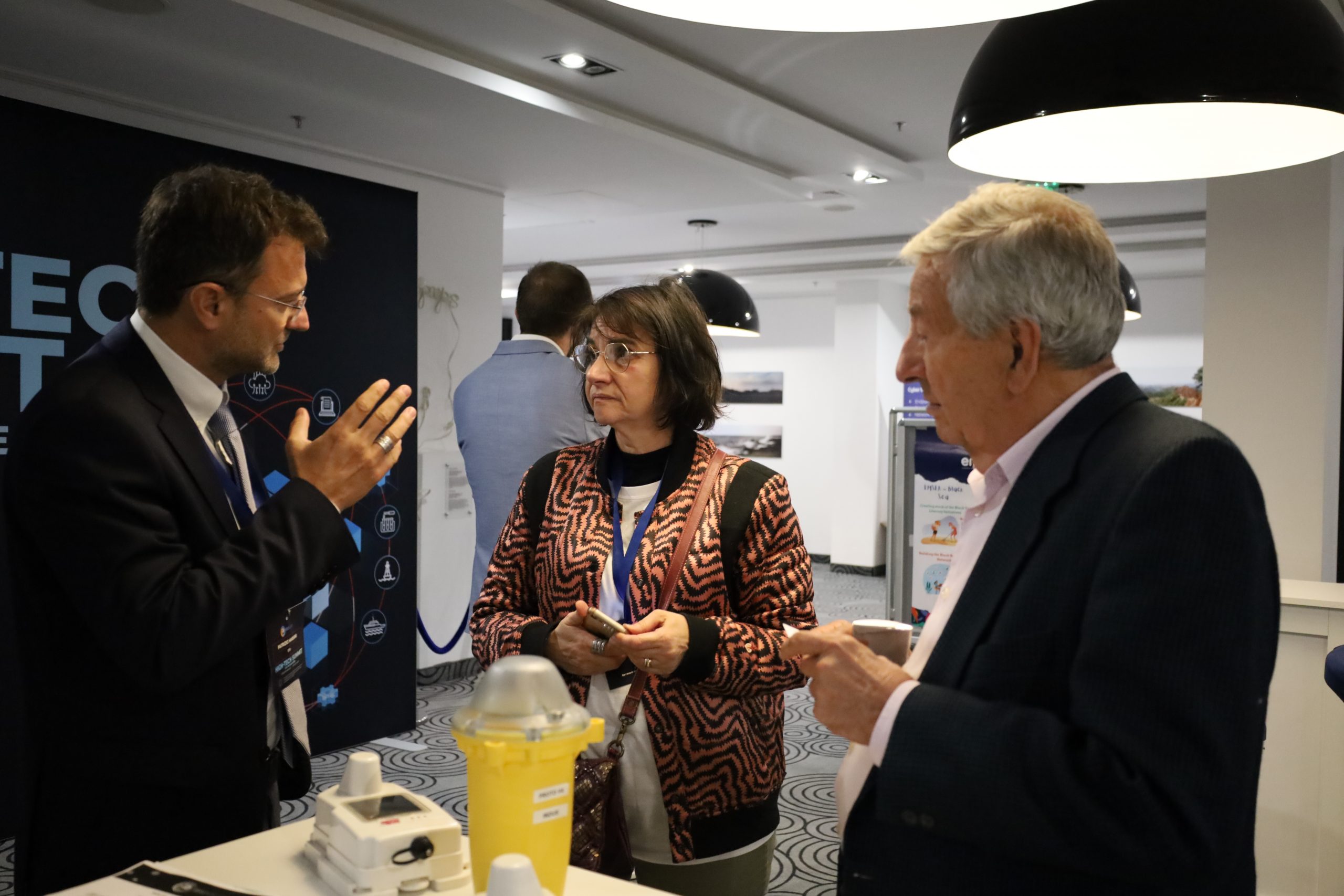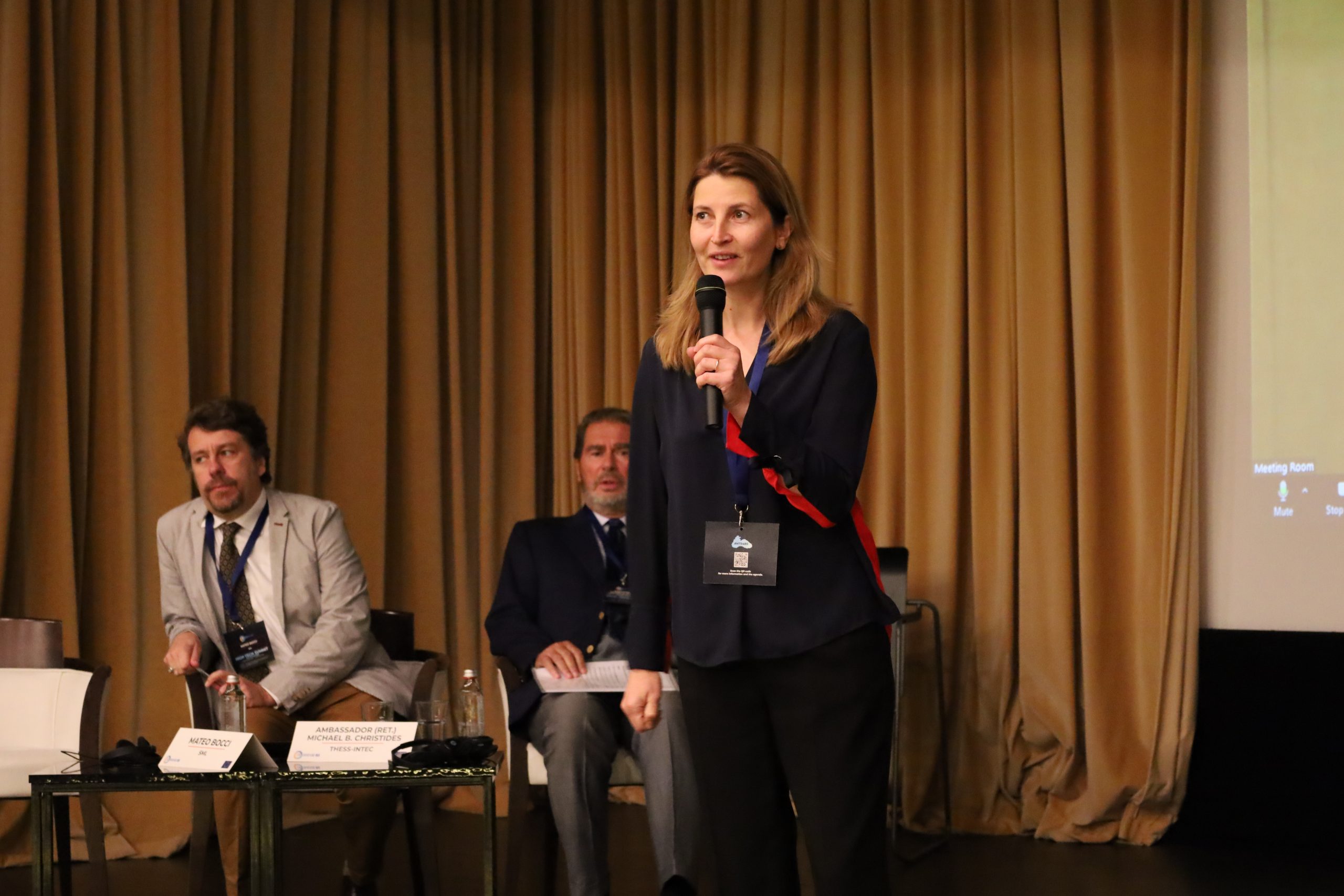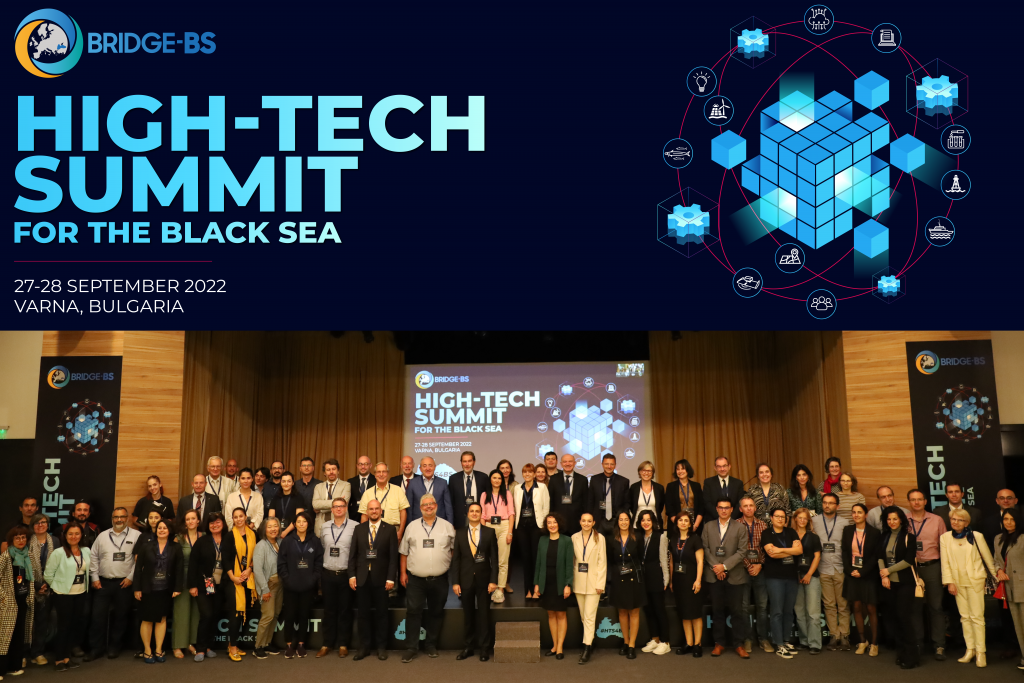
High-Tech Summit for the Black Sea took place on 27-28 September 2022 in Varna, Bulgaria!
The EU H2020-funded BRIDGE-BS successfully conducted the High-Tech Summit for the Black Sea on 27-28 September 2022 in Varna, Bulgaria.
With nearly 200 attendees (110 on-site participation) in total, there was a high level of participation from experts, scientists, researchers, entrepreneurs, and business people who have a vision of innovation and are committed to implementing sustainable technological practices in their work.
The event provided a welcoming environment for businesses, start-ups, organizations, and universities from the Black Sea basin and beyond to exchange, present, and discuss their most recent technological developments, debate the most recent discoveries, and participate in exhibition sessions.
As a large two-day research-based Black Sea forum, HTS4BS has kick-started with the opening remarks of BRIDGE-BS coordinator Baris Salihoglu who has emphasized that technology providers and users came together potentially for the first time for the Black Sea at this event. He stressed that this event should be a reminder of the need for peace and cooperation, especially in order to create the necessary context for the engagement of industries and technology developers in the Black Sea.
After the encouraging message of Bulgarian Minister of Innovation and Growth Mr. Aleksander Pulev, conveyed by Svilen Kraichev, the director of the Bulgarian Association of Shipbrokers and Agents and the Deputy Chair of Marine Cluster Bulgaria; Wendy Bonne, Nicolas Segebarth, and Peter Crawley as DG Research and Innovation officials provided an overview of the past, current and upcoming tools that the European Commission is implementing to support innovation in the maritime economy (Horizon Europe, Green Deal, Mission Ocean 2030, Waterborne Technology Platform, Digital Twin of the Ocean), and presented a calendar of future tenders to attract potential respondents among the participants. The event continued with the speech of DG MARE Policy Officer Patrizia Busolini, who highlighted “Smart Specialisation for Sustainable Blue Economy”, covering supporting the implementation of the Common Maritime Agenda and further promoting concrete links with Black Sea SRIA. After emphasizing the need for new tools for a Sustainable Blue Economy and the need for research, science, innovation, and technology to achieve these tools, Patrizio Mariani from Denmark Technical University (DTU) handed the stage over to Ilze Atasanova of the Bulgarian Maritime Cluster to deliver the outline of the day.
Moderated by Matteo Bocci from Stratégies Mer et Littoral, the first roundtable aimed to present different experiences of “enablers” for the Blue Economy through accelerators, financial support, and maritime clusters have begun with the contributions of key figures in the industry, public operators, research, and technology. The attendees had the chance to listen to inspiring insights for innovative actions from the Ambassador (ret.) Michael B. Christides, Phoebe Koundouri of ClimAccelerator, and Simone Raudino of DG NEAR. The roundtable also provided specific experiences of experts from the leading establishments in their field, including BlueInvest, Sky Lab DTU, GALATEA (please note that GALATEA Coordinator Pôle Mer Méditerranée also presented a recent survey on the Black Sea Glider System which is available here), and Maritime Technology Cluster FVG. During the discussions, key sensitive factors for innovation success were identified by the participants and included capacity building, youth empowerment, dialogue and proximity (among different types of actors), and intersectionality. The importance of education and research and the attention to the growth of IT and tech sectors for the future were also highlighted.
The day followed with the second roundtable that sheds light on the high-tech potential for a sustainable blue economy in the Black Sea under the moderation of Frédérick Herpers from Stratégies Mer et Littoral. As the key H2020 projects in implementing Black Sea SRIA, officials from BRIDGE-BS and DOORS Black Sea took part in the roundtable to discuss regional challenges and opportunities as well as the need for a sustainable blue economy in the Black Sea. It was noted that DOORS Black Sea and BRIDGE-BS will advance in cooperation for the objectives of boosting the technology and innovation potential in the Black Sea for ecosystem services and Blue Growth sectors.
While coming to an end, Patrizio Mariani, the lead of BRIDGE-BS WP7: Accelerating ‘Industry 4.0’ Business Models, and Mustafa Yucel, the co-coordinator of BRIDGE-BS, wrapped up the first day of HTS4BS in which highly productive discussions, inspiring speeches, and informative presentations took place thanks to the invaluable speakers and great participation. The day made a great final with the exhibition, where various initiatives and organizations from the research, private and non-profit sectors, innovation, technology, and maritime sectors were presented.
The second day of the HTS4BS continued with the project showcase on high-tech for sustainable innovation in marine research and blue economy sectors. In the first part of the session, which focused on technological devices for data monitoring and collection, officials from the National Research Council of Italy, Xer Technologies, and MarLiter introduced their work and businesses, as well as shared their personal experiences and views on how to achieve sustainable innovation through high technology. Also, Mustafa Yucel, the lead of BRIDGE-BS WP5: Smart Observations and Technologies, emphasized the research carried out within the scope of the project, revealing the innovative aspects of BRIDGE-BS. Shortly after, with a specific focus on Ports, Transport and Logistics, the attendees had the opportunity to get informed about GS Data, CLUJ IT, Braintonix, and the MedPorts Association and were inclined to further collaborations and ideas.
At the final session, where prominent projects, applications, and practices in fisheries, aquaculture, tourism, and recreational activities were showcased; initiatives of industrial companies and services such as CLS NEMO, OpenMode, BOATSANDGO, BoatMate, and Natural Greece attracted a dense deal of attention besides the successes of projects like BlackSea4Fish, BlueRoses, and Aquatech4Feed.
The day ended with a wrap-up summarising the highlights of the HTS4BS with particular stress on the necessity to make technology more affordable, easily achievable, and manageable. It is also noted that H2020 funded BRIDGE-BS, in that sense, will be one of the fundamental accelerators and implementors to obtain sustainable high-tech innovation in the Black Sea.
The BE-HTS4BS in 2022 provided a clear vision of the project (objectives/work done/ way ahead (e.g. launch accelerator)) to raise awareness and to engage BS private and public stakeholders but also potential donors such as BlueInvest. It is a key milestone illustrating the contribution of Bridges BS to support innovation in the Black Sea. The next edition will build on the on going work done in WP7 and beyond.
Some of the main BE-HTS4BS results are the following:
- Mobilisation of a wide range of solution providers (businesses, researchers, etc.) from across the Black Sea region and the other EU Sea basins, through the successful gathering of 116 innovators across the Black Sea to discuss high-tech potentials for sustainable blue economy
- Concrete discussion of areas of challenges/potentials for fostering the development and uptake of innovative solutions for the blue economy in the Black Sea region, to be addressed by future activities in the WP (including notably through the business accelerator)
- Promoted visibility of BRIDGE and SRIA roles in supporting technology transfer and new SMEs/Start-Up for a sustainable BE in the Black Sea and early exchanges on solutions to be developed by BRIDGE-BS as to understand the specific needs/interest of regional stakeholders
- Initial synergies activated in the context of acceleration of business innovation, with relevant other H2020 projects (e.g. DOORS) as well as EU financing initiatives (e.g. BlueInvest) to be further exploited later on in the implementation of the project (and notably as part of WP7)
- Identification of relevant areas of the support for the Black Sea Accelerator (e.g. type of TRL and sectors needing support), having showcased the variety of potential innovations existing across EU sea-basins and the still somewhat limited awareness of those across the Black Sea
- Launch and establishment of a recurrent platform for engaging innovators with solutions across the Black Sea and beyond in line with the SRIA and its implementation done by BRIDGE-BS (and DOORS) and to be further exploited and nourished through the next HTS4BS.
One of the main success factors what the approach proposed, notably not just promoting the HTS4BS as one off event but an action within a broader long-term strategy that includes acceleration initiatives and different future events aimed at enabling the community of innovators (researchers, businesses, financing actors, CSOs, etc.) for a sustainable black sea to engage and discuss through time – including by establishing connection with EU practitioners.
